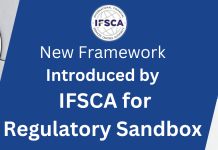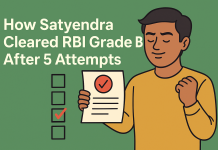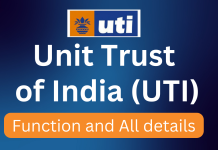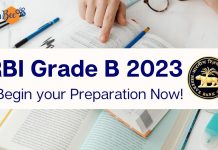The International Financial Services Centres Authority (IFSCA) is expected to announce its Grade A Officer recruitment notification very soon. This is a highly sought-after opportunity for aspirants who want to build a career in financial regulation, especially within India’s growing global financial hub. With the exam approaching, this is the ideal time to begin structured and focused preparation.
Instead of waiting for the official notice, aspirants should get a head start to stay ahead of the competition. This blog outlines guaranteed preparation strategies, subject-wise tips, and a practical weekly plan that will help you crack the IFSCA Grade A exam with confidence.
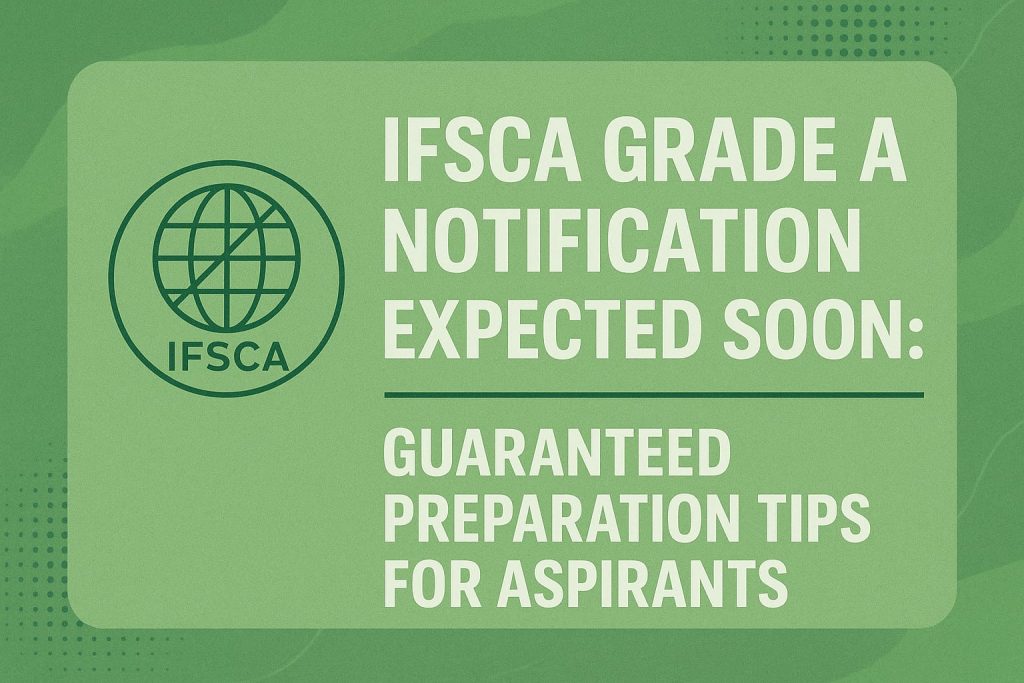
Why IFSCA Grade A Is a Valuable Opportunity
IFSCA serves as a unified regulatory authority that governs financial services in India’s International Financial Services Centres. As a Grade A officer, your responsibilities would include regulating and developing policies for banking, insurance, and capital markets within global financial environments.
The role is intellectually challenging and requires a deep understanding of economic and financial systems. The salary structure, perks, and learning opportunities make it one of the most attractive positions for finance-oriented candidates. All this makes aspirants anticipate the IFSCA Grade A Exam 2026 even more eagerly.
Understanding the Exam Pattern and Syllabus
Although the official notification has not been released yet, the IFSCA Grade A exam pattern & syllabus is likely to remain similar. The exam is conducted in two phases, followed by a personal interview.
IFSCA Grade A Exam Pattern Overview
Take a look at the exam structure for IFSCA Grade A in the previous exam cycle so that you can prepare for the upcoming exam with more anticipation and enthusiasm. The exam structure has been provided in the table given below:
| Phase | Paper | Subjects Covered | Marks | Duration |
| Phase 1 | Paper 1 (General) | General Awareness, English, Quantitative Aptitude, Reasoning | 100 | 60 minutes |
| Paper 2 (Subject Specific) | Commerce, Economics, Management, Finance, Costing, Companies Act | 100 | 40 minutes | |
| Phase 2 | Paper 1 (Descriptive English) | Essay, Precis, Comprehension | 100 | 60 minutes |
| Paper 2 (Subject Specific) | Similar to Paper 2 in Phase 1 | 100 | 40 minutes |
The merit list is prepared based on performance in Phase 2 and the interview. Each paper has a sectional cut-off, so balanced preparation across all subjects is essential.
Start Early: Build a Strong Conceptual Foundation
For Paper 2, the focus should be on core subjects like finance, management, accounting, economics, and important sections of the Companies Act. Start by reviewing basic concepts in each of these areas. Books on financial management by M.Y. Khan, Indian Economy by Nitin Singhania, and corporate law guides are highly recommended for conceptual clarity.
Don’t just read passively—make your own handwritten notes, summarize chapters in your own words, and revise frequently. The goal at this stage is not memorization but building a strong understanding of how these subjects interconnect.
Mastering Aptitude and English Skills
Phase 1 also includes sections like quantitative aptitude, reasoning ability, and English comprehension. These areas require daily problem-solving and practice. Begin by revising basic formulas, grammar rules, and reasoning patterns. Then, progress to solving section-wise tests and eventually move on to full-length mocks under timed conditions.
Focus on accuracy and gradually improve your speed. Even 30–45 minutes a day on these subjects can lead to consistent improvement if done regularly. Reading editorial articles and solving puzzles can also help improve your vocabulary and analytical thinking simultaneously.
Stay Updated With Financial and Regulatory Developments
A major part of the general awareness section in Paper 1 includes current developments in economics, finance, banking, and global trade. Reading newspapers like The Hindu or The Indian Express, especially their economy and editorial sections, is crucial. Additionally, follow updates from IFSCA’s official website, RBI notices and SEBI circulars issued by these organizations along with major announcements from the Union Budget or Economic Survey.
Make it a habit to create daily or weekly digests of key updates. With ixamBee’s BeePedia platform, you also get regular GK updates for the General Awareness papers. These resources will prove helpful during the final revision stage, especially when time is limited.
Practice Descriptive English in a Targeted Manner
Paper 1 of Phase 2 involves descriptive writing, which includes essays, precis writing, and comprehension. Start by writing one essay every week on financial or economic topics. Keep your essays structured into an introduction, a well-reasoned body, and a crisp conclusion.
When attempting precis and comprehension, focus on understanding the central idea and expressing it concisely. Reviewing editorials and summarizing them in 100–120 words is a good way to sharpen your precis-writing skills. Also, consider peer reviews or use grammar check tools to evaluate your writing for tone, clarity, and coherence.
Structured Weekly Plan for Effective Preparation
A consistent routine ensures long-term retention and stress-free progress. Here’s an example of how you can structure your week:
| Day | Study Focus | Time Allocation |
| Monday | Finance and Management concepts | 2 hours |
| Tuesday | Quantitative Aptitude and English practice | 2.5 hours |
| Wednesday | Companies Act topics and Reasoning practice | 2.5 hours |
| Thursday | Economic theory and general awareness | 2 hours |
| Friday | Full-length mock test and detailed analysis | 3 hours |
| Saturday | Descriptive English writing and revision | 2 hours |
| Sunday | Review of weekly notes and current affairs | 2 hours |
This kind of weekly cycle gives you comprehensive coverage of all major topics, allows you to identify your weak areas, and builds exam temperament through regular practice.
Avoid These Common Mistakes While Preparing
One of the most frequent mistakes is postponing preparation until the notification arrives. Since the syllabus is vast and includes both objective and descriptive elements, early starters always have a significant advantage.
Another common error is focusing only on Paper 2, assuming Paper 1 is easy. However, neglecting aptitude, English, or current affairs can affect your chances in Phase 1. Sometimes, aspirants also tend to underutilize the IFSCA Grade A Online Course, which has proven to be beneficial in exam preparation.
Some aspirants rely too heavily on passive reading without active problem-solving. Practice is non-negotiable, especially when it comes to aptitude and writing skills. Finally, skipping IFSCA Grade A mock tests and revision can undo all the effort you’ve put into preparation.
Summing Up
With the IFSCA Grade A notification just around the corner, now is the time to build momentum. A steady and smart preparation strategy that covers both conceptual learning and practice is your best bet for success. A career with IFSCA places you at the intersection of national policy and global finance. Start now—and be ready to submit your application with confidence the moment the notification is released.
ixamBee specializes in providing expert guidance and resources for banking exams 2025, ensuring that you are well-prepared for the Upcoming Bank Exams like RBI Grade B, NABARD Grade B, IBPS SO, and more. Our courses align with the bank exam calendar 2024, covering all the essential topics. With a focus on the upcoming bank jobs, our Previous Year Papers, BeePedia, SSC CGL, SSC CHSL, SSC MTS and other Mock Tests are designed to help you excel in upcoming banking exams.
Also Read:
RBI Grade B Officer: Background Doesn’t Matter — Your Preparation Does
2026 New Year Resolutions: What Should a Banking Aspirant Do?
Cracking SIDBI , PFRDA and BoB LBO Exams Together: Easy Preparation Strategies.




